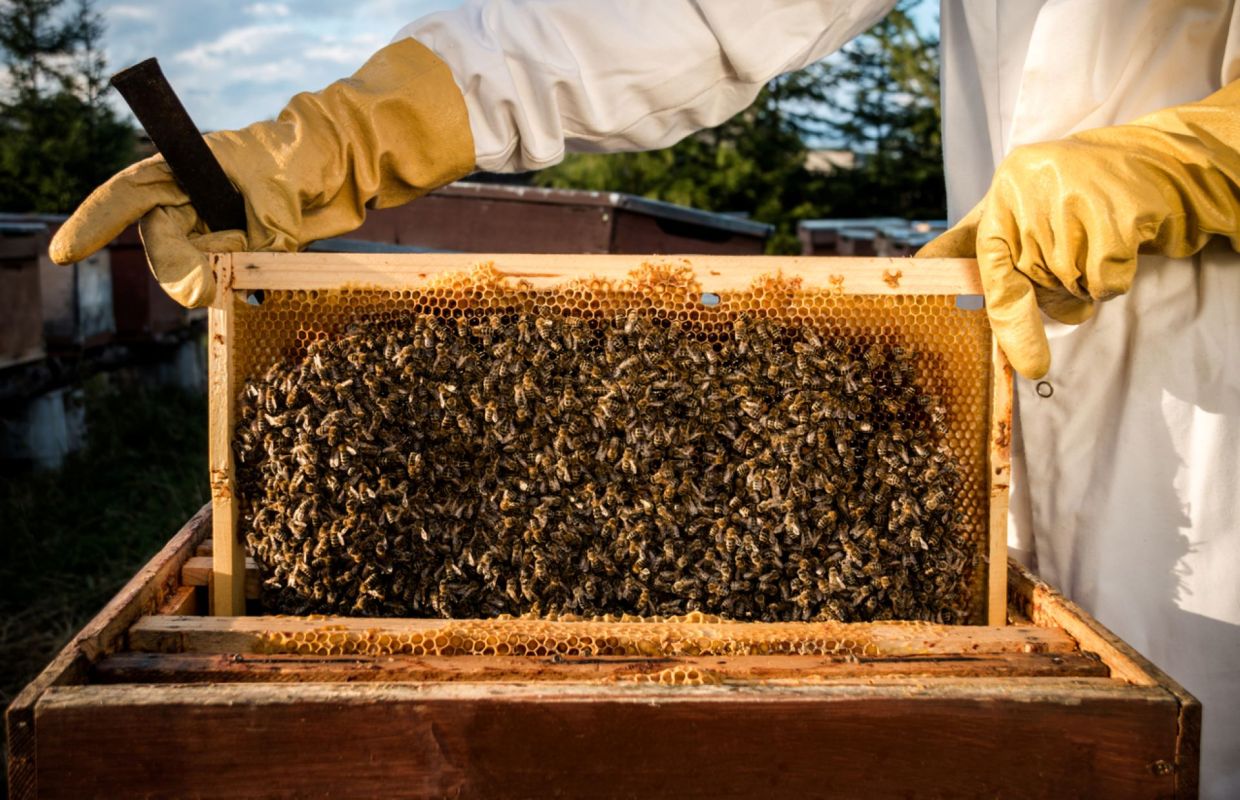For Evambe Thompson, the health of Mount Cameroon's surrounding forests is inextricable from his own livelihood. As a beekeeper in the Buea Municipality of Cameroon, his work helps to pollinate vital trees and plants in the national park while putting food on his own table.
"There are certain crops that will never grow without beekeeping," he told Planet Forward. "The bees provide ecosystem services because the bees collect pollens and also carry out seed pollination."
Thompson learned the art of beekeeping first from his grandfather, who collected honey from wild bees in the forest.
Beekeeping is a traditional practice that has existed in the Cameroon forest and savannah communities for generations, with groups such as the Gbaya people viewing it as central to their culture.
But for the past 20 years, beekeepers in the area have increasingly formalized their methods, with input from the government and conservation groups.
The Mount Cameroon forest is one of the most biodiverse hotspots on the planet, but a combination of unsustainable agriculture, uncontrolled fires, and lava flow from local volcanic activity is now threatening its flora and fauna.
Between 2001 and 2022, Cameroon lost over 15,000 acres of tree cover to fires alone.
Unregulated beekeeping can contribute to this problem, as traditional beekeepers light fires to smoke bees out of their hives, which sometimes get out of control. Thompson, by comparison, uses a container called a smoker, which controls the fires used to create this smoke.
Thompson was initially granted three beehives by the Mount Cameroon National Park authorities after receiving training in beekeeping for conservation. He has since increased to five beehives distributed throughout the forest and hopes to be given more soon.
With just this small collection of hives, Thompson can harvest between around two gallons of honey in one day and over 26 gallons in a year, which would raise about $665.
Honey has been earmarked as a product that could alleviate both poverty and deforestation in Cameroon.
"There is nobody [getting] into beekeeping without having the attitude of growing trees or seeing a naturally beautiful environment," Thompson said to Planet Forward.
Join our free newsletter for cool news and cool tips that make it easy to help yourself while helping the planet.









